In the sale of Opel and Vauxhall, General Motors requested a non-compete clause, which will keep PSA Groupe from entering markets with Opel or Vauxhall vehicles utilizing GM architecture. However, once Opel’s portfolio ditches the last remanence of its American owner, it’s free to expand where its new French owner sees fit.
Now, it seems more likely than ever the Opel blitz badge will return to the United States. Automotive News reported last Friday that Opel will enter 20 new markets by 2022. Although CEO Michael Lohscheller didn’t name the U.S., or North America at all, Opel’s labor leader Wolfgang Schaefer-Klug said, “nothing more stands in the way” of a U.S. introduction.
PSA had been planning a return to the U.S. long before it acquired Opel and Vauxhall, though both brands offer a strategic advantage for the French automaker. PSA CEO Carlos Tavares previously said Opel, specifically, will help the automaker’s potential since many consumers won’t consider a French car. Opel’s German founding inherently makes it more attractive to a wide body of consumers.

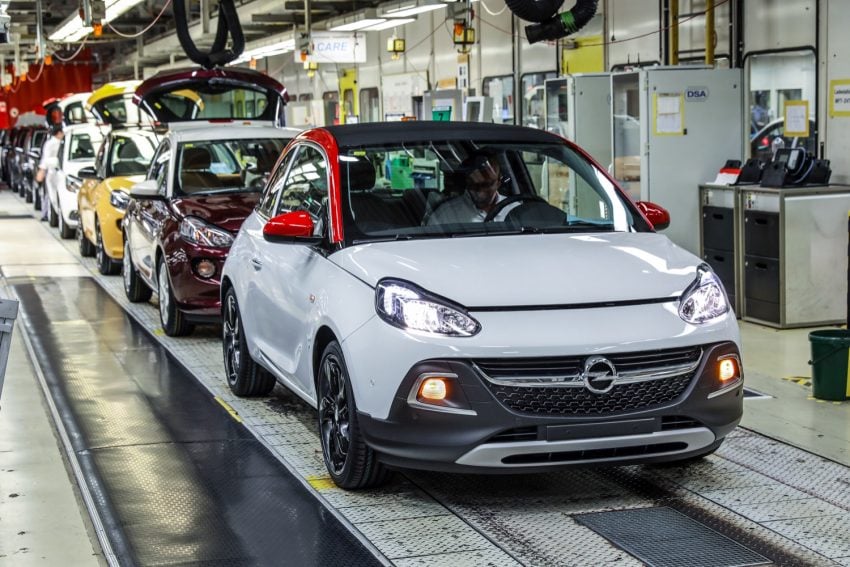

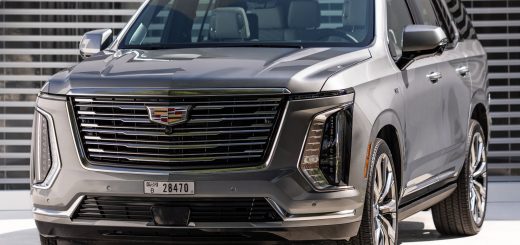
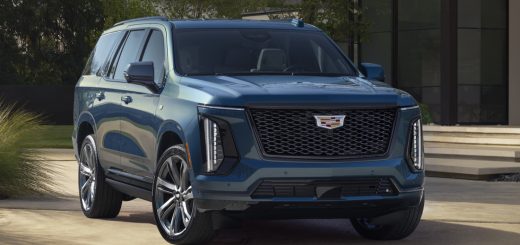

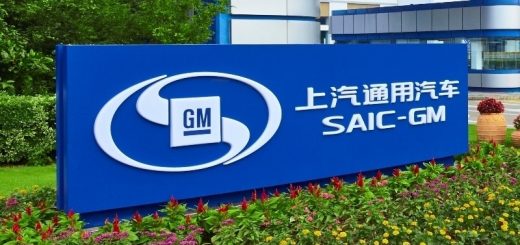
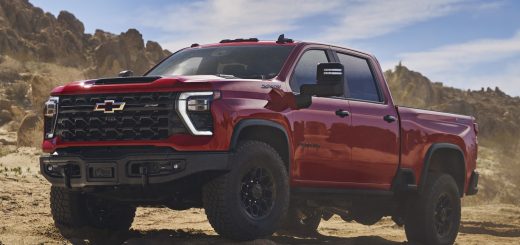







Comments
The ITDC (International Technical Development Center) in Opel’s headquarter at Rüsselsheim with decades of experience with US requirements has already been designated ss PSA’s competence center for targeting the North American market.
Do you foresee Opel creating a new platform (shared with PSA vehicles) for the U.S market or engineering current PSA platforms to conform to U.S regulations?
I would think the latter. Making sure, that vehicles constructed with those modular construction sets can be “federalized” and then to develop the specific model variants for the North American market(s).
Yup, 2 PSA engineered platforms henceforth for all Opel and Vauxhall passenger vehicles across all markets.
I’m looking forward to new car companies coming to the U.S. More choice in the market place is better for consumers.
Opel provides Peugeot a fantastic global and US marketing opportunity. PSA will be able to sell French cars using Opel’s German mystique.
Peugeot is a globally damaged brand while most global consumers have never been behind the wheel of an Opel.
Buying Opel was genius. PSA today makes quality vehicles that have put the company back into the race. Once PSA eliminates redundancies, down-sizes Opel’s EU footprint, you will see a profitable company that relies on re-skins depending upon market. This will be easy considering how little PSA and Opel compete outside of Spain.
French quality is no longer a joke. Nissan carries a lot of Renault DNA. Traverses has taken lessens learned at Renault and applied them to PSA.
It will be sad, however, to see the current Astra, Adam, Ampera-e and Insignia die early.
‘It will be sad, however, to see the current Astra, Adam, Ampera-e and Insignia die early.’
I haven’t driven an Ampera-e. But owning an Astra Sports Tourer and having driven the new Insignia, they are by far the very best cars ever to wear a griffon or lightning badge. I know there’s a diverse range of opinions on the sale of what was once GM Europe to PSA. But there’s no two ways about it, in the form of the Insignia and the Astra, GM sure went out of the UK and Europe with its head held high.
“the sale of what was once GM Europe to PSA” — actually this is not what was sold.
Not “GM Europe” but the “Opel/Vauxhall automobile business”.
GM Europe still exists with its old seat in or near Zürich, Switzerland, and is occupied with trying to sell Cadillacs as well as Chevrolet Corvette and Camaro (yesterday I saw a red Corvettte cabrio in a shop window).
These are fantastic cars, on par or better than Ford or. VW. This is why GM selling Opel is disappointing. Ford, after European restructuring, is thriving. Barra lacked the patience to finish the Opel reboot, instead focused on Wall Street short sighted demands.
Opel-derived product had become GMs best, was going global through Holden and Buick.
I hope PSA maintains quality, and does well with Opel and Vauxhall.
I am not sure hiding a French car under a German name will work in this competitive market unless they are cheap.
What about Korean cars under a German name? German cars under an Australian or US-american name? Or were all Opels since 1929 in reality “US cars with a German name”?
Methinks that these will be European cars under a German name.
Opel’s development center in Rüsselsheim will be an integral part of the distributed development enterprise of PSA, for all five brands of this corporation.
“Methinks that these will be European cars under a German name.”
With I suspect a not insignificant amount of Chinese cars under a German name thrown in for good measure too.
Scott, you have an illogical bias against French cars. PSA under Traverses makes quality cars so I can only speculate that your gripe is political. You lack first hand experience given PSA and Renault left the US market two decades ago.
There is a marketing bias against French cars when compared against German and Japanese. US cars face the same bias in the US, on the coasts, as well as in Europe and other markets.
Most people aren’t car geeks, will not know or care in global markets, if Opel has French bits. I suspect that the global Opel line up will consist of the very best Peugeot, DS, and Citroen models with cosmetic tweeks.
Who cares that Nissan is a Renault satellite with French bits? Not the Americans or Japanese considering sales totals.
PSA, like VW, will need to offer less fuel efficient, more powerful powertrains to entice American drivers. If the Opel Grand Country X is any indication of what PSA can do then the company will be fine.
I’m pretty certain that last year, more Opel branded vehicles were made in Poland, South Korea and the UK than were made in Germany.
Just so long as Opel remains a recognisable entity, if the quality’s right, the messaging’s right and the price is right, I suspect few people will care. And in fairness, as a former Insignia owner, PSA Groupe quality can’t be any worse than some of the stuff coming out of Russelheim in recent years.
Here are the production figures by country taken from “Opel Facts and Figures 2016”, ordered by units produced in 2016:
units % of total Country
——- ——- ————-
361.411 29,96% España
258.384 21,42% Germany
201.234 16,68% Polsce
191.735 15,90% U.K.
139.621 11,58% Korea (ROK)
28.249 2,34% France
25.541 2,12% Türkiye
Total
1.206.175 100,00%
As regards to your experiences with the one Insignia which you have owned — other people have other experiences
These figures shoe certainly not only “Opel branded vehicles”, but certainly also all Vauxhall branded ones, and I am quite sure also the Holden or Buick branded Cascada and Astra.
The production in France is predominantly the Movano van, plus a few Vivaros, not yet the Grandland X whose production in the old Peugeot factory at Sochaux starts only this or even next year. From Turkey comes the Combo, produced by Tofaş in Bursa. The new Combo will start next year in Vigo (Spain) and/or Mangualde (Portugal).
I am quite sure that in future there will be no brand specific factory any more, but any factory originally built as Peugeot, Citroën, Simca, Chrysler, Bedford, Vauxhall or Opel will be available to assemble cars of any of the five PSA brands.
I’m pretty certain you’re correct in concluding that any factory will ultimately build any and possibly every brand of vehicle. Certainly Tavares is on record as saying in future, Ellesmere Port could produce Peugeot and Citroen vehicles as well as Opel, Vauxhall and for a short time, Holden vehicles. Whilst in the UK press it’s reported that the former IBC plant in Luton will become PSAs centre of excellence for CV production across all brands. So everything points to all plants having a multi-brand future.
Could you please give some more concrete links on this UK press musings about Luton as “PSA’s centre of excellence for CV production”?
Acutally, the smallest LCV segment, the Berlingo, Partner and Combo are “at home” in Vigo and Mangualde, and the middle ones, the Peugeot Expert and Citroën Jumpy (together with their Toyota sibling ProAce) are produced in the former SEVEL Nord plant in Hordain/Lieu-St-Amand.
Luton is currently producing the Opel/Vauxhall equivalent to the Peugeot Expert and Citroën Jumpy, but based on the GM-Renault cooperation agreement which originated in the 1980ies, if I remember that correctly.
Luton could come into play if PSA would decided to pull out of SEVEL Sud, the other Fiat-Peugeot joint-venture, and replace the Peugeot/Citroën versions of the Fiat Ducato by an own construction. Luton could be the place to build this vehicle while the Vivaro would move to Hordain/Lieu-St-Amand. The Renault owned SOVAB plant in Batilly would suffer…
But all this is speculation.
Here’s one report of several that have done or are doing the rounds:
Luton could become centre for PSA group’s van growth plans http://www.autoexpress.co.uk/vauxhall/101651/luton-could-become-centre-for-psa-group-s-van-growth-plans
In chapter 4.4 “Major contracts” of the “Registration document (including the Annual Financial Report) by PSA for the year 2016, I read unter the heading “3 – Additional agreements” on page 145 of the PDF:
The first one of those additional agreements is “a) Intellectual property licence and contract for engineering services” which begins with this paragraph:
coupled with the mentioned non-compete clause.
I wonder if these additional agreements have actually been signed, since I have heard nothing about those, and the media are talking about licence fees which PSA-Opel supposedly has to pay for being allowed to build and sell the current Opel/Vauxhall lineup with GM architectures.
The doument can be found here:
www .groupe-psa .com/en/document/2016-registration-document/
It’s a confused picture. I’ve read elsewhere that PSA does not have to pay GM any royalty fees for the use of its technology during the remainder of the life of all models currently in production. Which kinda makes more sense, given some of the product the recently enlarged PSA Groupe manufacturers is ultimately sold back to GM for sale as Holdens and Buicks. But ultimately only 2 parties know the exact agreement and I suspect neither is up for telling.
This is what I quoted, just that I tried to use an HTML <blockquote> to mark the quote, which some WordPress sites allow to be used in comments, but this one doesn’t. If I only had complemented thsi with regular quote characters ”
The second and fourth paragraphs in my previous message are quotes from the PSA document.
I.e. that the licence fees for the GM “intellectual property” rights is paid with the sales price of the Opel/Vauxhall automobile business.